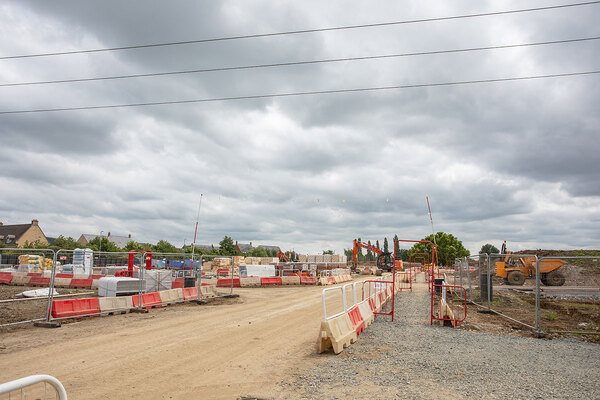Brown: build more for less
A future Labour government would launch a ‘new deal’ for housing that would mean more homes being delivered with less funding, the prime minister has announced.
Kicking off Labour’s general election campaign with an exclusive interview with Inside Housing this week, Gordon Brown says the new deal would require social landlords to be more efficient and expect them to make more use of their borrowing power to fund new developments.
‘We would like to see the sector use its assets and development capacities more efficiently,’ he said. ‘Through a combination of, for example: asset sales, better leveraging of balance sheets, greater efficiency in maintenance spending and innovative building methods, we believe there is significant scope to deliver more homes at lower grant rates.’
A source involved in discussions said the party believes housing associations could make savings of about 20 per cent by retendering management and maintenance contracts.
As part of the deal the government would take steps - including legislation if required - to guarantee housing associations’ status as independent rather than public bodies. This is something the sector has been campaigning for since a legal case cast the status into doubt last year. This would protect borrowing by ensuring debt remains off the public sector balance sheet.
Labour will publish a series of mini-manifestos in the run-up to the election. One will focus on housing, a key demand of Inside Housing’s House Proud campaign.
Mr Brown said the new deal’s initial phase was the proposed reform of the housing subsidy system, announced two weeks ago. Mr Brown will launch a review, chaired by the housing minister, to look at the plans if he is elected. He added that Labour would safeguard the future of the housing regulator the Tenant Services Authority. The Conservative Party has vowed to scrap it. Mr Brown said the TSA had an important role in maintaining lenders’ confidence.
Reacting to the plans, housing associations said they were happy to examine ways of improving efficiency, but that they had a duty to remain financially viable and protect their tenants.
Stuart Ropke, head of investment policy and strategy at the National Housing Federation, said individual boards would have to weigh up whether or not they could push their balance sheet capacity any further without damaging their businesses.
‘Good housing associations are always looking at ways to increase efficiency,’ he said. ‘But the real way to ensure the housing crisis is tackled is to ring-fence the housing budget.’
Dave Jepson, deputy chief executive of 50,000-home Merseyside-based Riverside, said he was pleased Mr Brown had acknowledged associations’ important role in delivering new homes. He added: ‘We are sure that we can achieve more by continuing to work closely with local authorities.’
Richard Capie, director of policy at the Chartered Institute of Housing, said: ‘It is very clear that housing providers need to demonstrate what they can bring to the table. There are going to be some tough questions around efficiency and account balance sheet capacity.’









